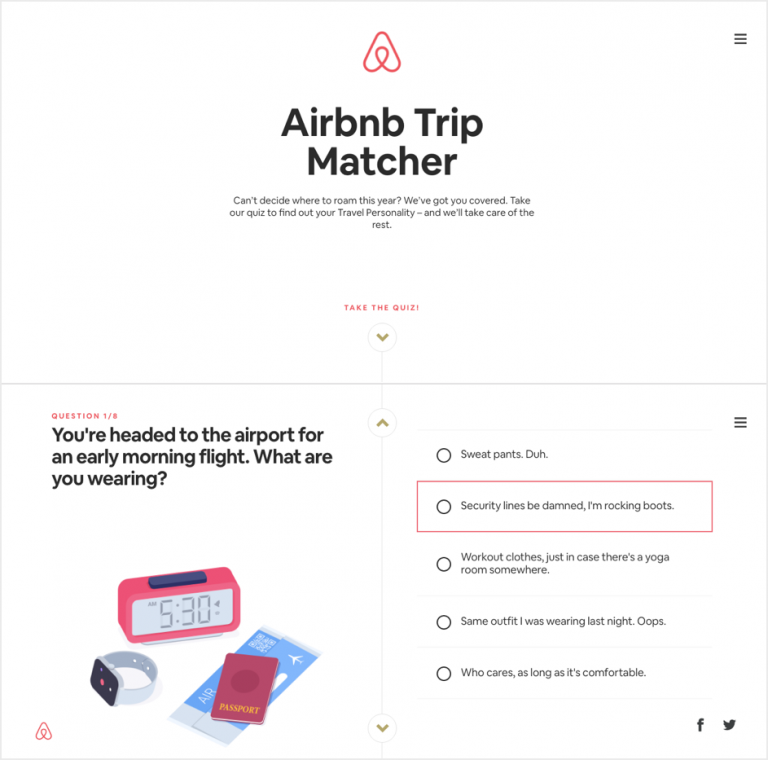
Marketing used to be simple…
Create a promise. Find a platform. Deliver a message.
As long as these three elements worked in unison, people would buy what you were selling.
Then came the internet—the biggest marketing platform ever created.
In the beginning, that’s exactly what it was. A platform that you could use to deliver a message.
But then things started to get complicated.
As we began crawling out from our safe rock of naivety, the implications of exactly what this platform meant for society started to rear their head.
Our personal thoughts, feelings, and information were now in the hands of those wanting to sell us things.
The clash of the titans: personalization vs privacy
As with any progression in technology or societal innovation, it starts as a free-for-all with little governance. Before long, society develops a strong desire to protect their rights and regulation becomes inevitable.
That’s what is happening now with marketing.
Given the enormous amounts of personal data and information stored in the ether of the internet and beyond, a question of how this affects our rights and privacy as individuals has become prominent.
It’s the perfect storm of data, technology, and human instinct…
Marketers want to personalize the consumer experience for people because they know it results in better business outcomes. Utilizing advances in artificial intelligence (AI), cross-platform synchronization, and machine learning, marketers are creating a consumer experience that is more personalized than a recommendation from your best friend. But consumers, for the most part, want to protect (or at least control the use of) their personal data.
It poses the question: Where do we draw the line between personalization and privacy?
What the research is telling us
Salesforce recently published their 5th installment of the State of Marketing report, a research study that surveyed over 4,000 marketing leaders around the world.
The primary goal of this study was to determine how cross-functional dynamics, data, personalization, and consumer engagement, are changing the way businesses and customers interact.
Here are some of the key findings from the study:
- 59% of high performers use customer data to create more relevant experiences.
- The adoption of AI by marketers has grown by 44% since 2017.
- However, 35% of marketers feel challenged to balance personalization with privacy, and;
- Only 30% of marketers agree their organization is completely satisfied with their ability to balance personalization with privacy.
- Yet, 44% of respondents believe their brand goes above and beyond to protect and respect customer privacy.
In short: more marketers are using technology to personalize the customer experience, but they are also actively looking to protect the privacy of their customers.
The tug-of-war is real…
How do we strike a balance between personalization and privacy?
The battle between personalization and privacy is only just beginning.
As marketers, we are scratching the surface of what is possible. For consumers, we don’t really even know what we want to control at this point—but it’s something.
The thing is, despite an uproar about privacy, 79% of customers are willing to share data in exchange for contextualized engagement and 88% will do so for personalized offers.
Airbnb is one example of a brand who effectively balances personalization and privacy. Their Trip Matcher quiz enables users to personalize their browsing experience by answering a series of targeted questions. This puts the power of marketing personalization in the hands of the user, not the company.
Another brand who puts personalization in the hands of the user as a way of balancing the privacy equation is Warby Parker. They have a promotion which allows customers to try their glasses frames at home for free. But in order to choose the right glasses to try, customers complete an interactive quiz which personalizes the recommendations for them:
These are just two examples of brands who are striving to balance the desire for privacy with the expectations of personalization.
Wrap
In the end, buyers still crave connection with businesses—they want to feel appreciated. In order to create a sense of connection for customers at scale, we need to combine technology with human instinct to personalize interactions across all channels.
Yes, we need to use personal data to deliver on this reality, but if we do it in a way that gives customers choice and control it will build more trust than any form of marketing in history.
Discover what the highest-performing marketers are doing to tackle this challenge in the State of Marketing report.














